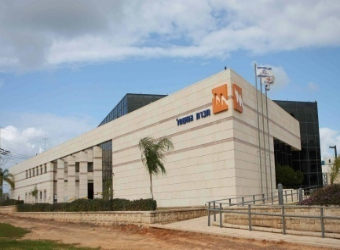The financial crisis at the state-owned Israel Electric Corporation over the past decade was the result of a number of wasteful practices that have cost the utility nearly NIS 1 billion a year over the past decade, according to a study drafted by the Public Utilities Authority (Electricity).
Among the factors cited in the document is what its authors describe as excess payments of NIS 12 billion in public funds to an employee pension fund and an accounting measure that increased the IEC’s pension obligations by about NIS 10 billion.
The report was submitted to an advisory panel headed by the director of the Government Corporations Authority, Uri Yogev, a former budget director in the Finance Ministry. The committee is evaluating potential structural reforms to the electricity sector.
In their presentation to the committee, representatives of the utility authority said the Israel Electric Corp. had acknowledged even 10 years ago that the company had 2,500 unnecessary employees, but did not address the issue despite repeated promises to do so.
The state-owned company was forced to reduce inflated projections regarding its pension obligations in 2009, after being ordered by the Israel Securities Authority to take action. “The solution to the IEC’s situation doesn’t necessitate a rate hike, an accounting solution would suffice to eliminate the alleged discrepancies,” the study said.
Another problem involves NIS 963 million in operational expenses the utilities agency has refused to recognize. This amount came on top of concessions given to the Israel Electric Corp. due to significant increases in the utility’s fuel costs resulting from the suspension of natural-gas deliveries from Egypt. The utility agency attributed the overspending largely to a rise of about NIS 600 million to the Israel Electric Corp. payroll.
The regulators say the Israel Electric Corp. should collect the NIS 2.4 billion it is owed as a result of the natural-gas shortage, in addition to NIS 1 billion owed for electricity provided to the Palestinian Authority, and withdraw NIS 1.7 billion from its illegal employees trustee account. That, in combination with efficiency measures, will solve the problem.
The agency also calls for a reform in the IEC’s corporate structure, which it says will reduce customers’ electric bills. It proposes creating discrete corporate entities for electricity production, transmission, distribution and supply.
Competition from the private sector
Although the Israel Electric Corp. currently faces limited competition from smaller, privately-owned electricity providers, the amounts of electricity generated by the private sector in Israel are relatively low. The utility authority expects the market share of private generators to rise significantly over the next several years. The privately-owned Dorad Energy, in its own presentation to the Yogev committee, said the Israel Electric Corp. views the private electricity producers as the enemy and is using its power as a monopoly to impede their efforts to go online. A number of other private electricity producers also appeared before the panel. They argued that only competition in the sector would bring down electricity rates and called for a moratorium on the construction of new Israel Electric Corp. generating plants in an effort to reduce its market share to 50%.
Source: Haaretz



